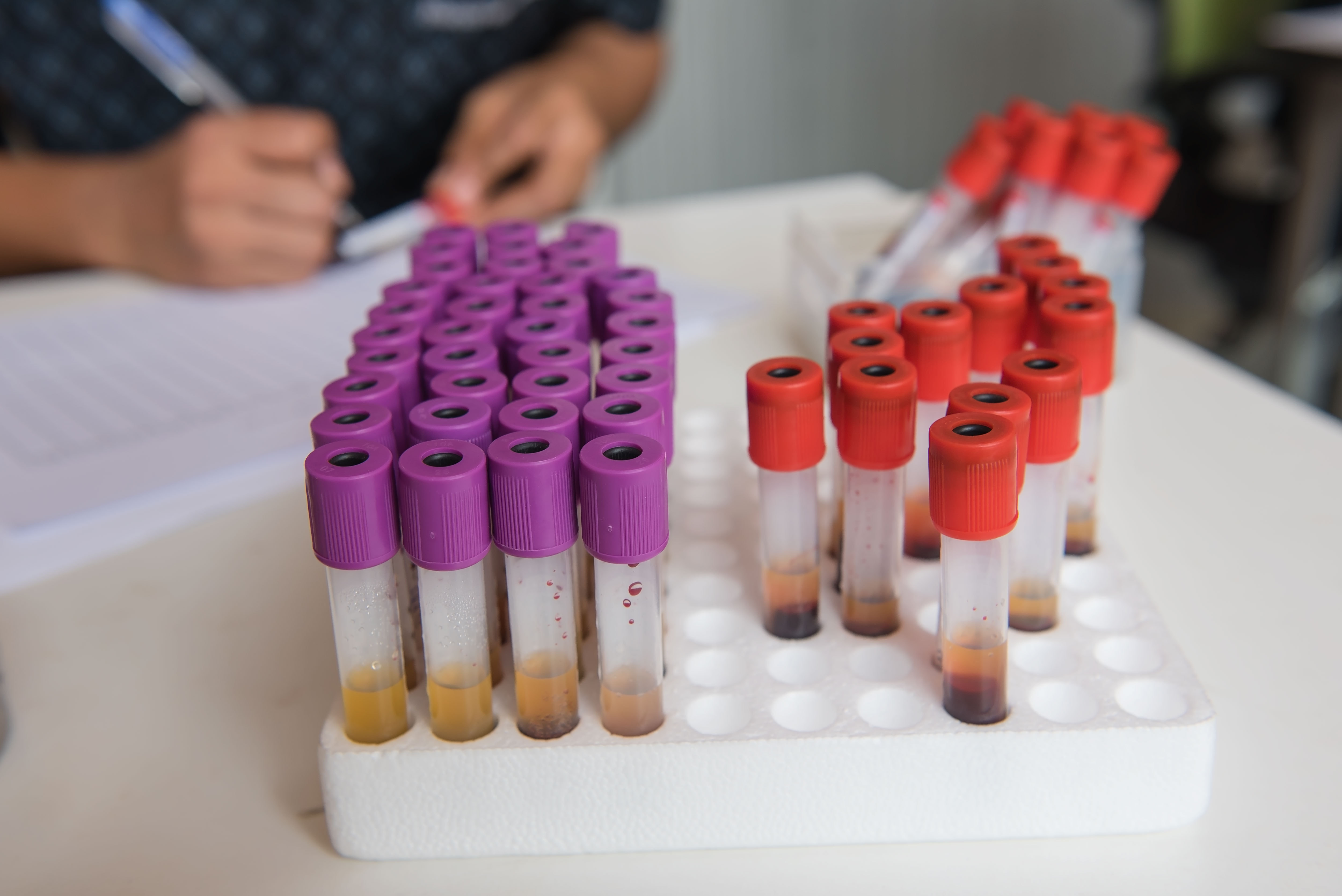Study Finds Higher Inflammatory Markers in GBA-associated Parkinson’s

People with Parkinson’s disease associated with mutations in the GBA gene have elevated levels of inflammatory signaling molecules in their blood, a new study suggests.
The study, “Plasma Cytokines Profile in Patients with Parkinson’s Disease Associated with Mutations in GBA Gene,” was published in the Bulletin of Experimental Biology and Medicine.
Some mutations in the gene GBA (which codes for an enzyme called glucocerebrosidase) significantly increase the risk of Parkinson’s, for reasons that aren’t fully understood. Previous research has suggested that such mutations are associated with greater buildup of toxic alpha-synuclein protein aggregates in the brain.
This buildup would be expected to promote inflammation in the brain (a hallmark of such aggregates). However, whether there is an altered inflammatory profile in people with Parkinson’s who have a GBA mutation hasn’t been thoroughly investigated.
In the study, researchers measured the levels of cytokines in the blood to assess whether these patients have different levels of inflammatory markers, compared with other Parkinson’s patient and controls. Cytokines are molecules secreted by immune cells that facilitate cell-to-cell communication. Broadly speaking, most cytokines can be classified as pro-inflammatory or anti-inflammatory, based on whether they spur or reduce immune activity.
The researchers measured cytokines using two methods: ELISA (enzyme-linked immunosorbent assay) and multiplex analysis. Functionally, these tests are similar. For this study, the two were used to measure a wider range of different cytokines and so that findings from one assay could be used to corroborate the other.
Using ELISA, the researchers measured cytokine levels in the blood of eight people with GBA mutation-associated Parkinson’s (five male, three female, average age 67.0 years), in 29 people without Parkinson’s (16 male, 13 female, average age 68.5 years), and in 23 people with sporadic Parkinson’s (10 male, 13 female, average age 66.5 years). “Sporadic” in this case refers to Parkinson’s disease that develops in the absence of a disease-associated mutation (such as GBA).
Multiplex analysis measured cytokine levels in eight people with mutation-associated Parkinson’s (three male, five female, average age 68.0 years), in 28 people with sporadic Parkinson’s (12 male, 16 female, average age 70.7 years), and in 28 people without Parkinson’s (15 male, 13 female, average age 67.5 years).
There was some overlap among individuals measured for each assay.
Overall, the researchers found higher levels of some pro-inflammatory cytokines in people with GBA mutation-associated Parkinson’s, compared to sporadic Parkinson’s or controls (i.e. no Parkinson’s).
For example, ELISA showed that the average level of the pro-inflammatory cytokine interleukin 1 beta (IL-1 beta) was 1.57 pg/mL in people with mutation-associated Parkinson’s, whereas it was 0.64 pg/mL in sporadic Parkinson’s and 0.61 pg/mL among controls. Multiplex analysis supported these findings with similar results.
The levels of the cytokine TNF-alpha were also higher in patients with mutation-associated Parkinson’s than either sporadic Parkinson’s patients or controls, using ELISA (1.28 vs 0.39 vs 0.39 pg/mL) and multiplex analysis (15.39 vs 11.31 vs 12.04 pg/mL).
In addition to IL-1 beta, multiplex analysis also revealed enhanced levels of IL-2 and IFN-gamma, and reduced plasma levels of monocyte chemoattractant protein-1 in patients with mutation-associated Parkinson’s disease when compared to the other two groups.
Several cytokines were assessed by one assay or the other, not both. As such, data showing elevated levels of these cytokines were less supportive of the findings since only one measurement was used.
Additionally, for some cytokines, while one assay found significantly altered levels, the other did not. This could be attributed to altered sensitivity of the assays, differences in the people samples, or other factors. Further research will be needed to validate and clarify these findings.
“Our findings suggest that [Parkinson’s disease] associated with mutations in the GBA gene … is characterized by increased plasma levels of proinflammatory cytokines,” the researchers said.






